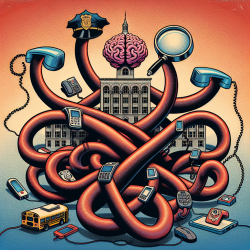Introduction
In the realm of mental health, understanding the cognitive performance of elderly patients with schizophrenia is crucial for practitioners. A recent study, "Cognitive performance of long-term institutionalized elderly patients with schizophrenia: A case control study," sheds light on this topic, revealing significant insights that can enhance therapeutic approaches. This blog delves into the study's findings and their implications for practitioners in the field.
Key Findings
The study compared the cognitive performance of elderly institutionalized patients with schizophrenia against a control group of institutionalized elderly individuals without neurological or psychiatric diseases. Utilizing the Cambridge Examination for Mental Disorders of the Elderly (CAMCOG), the study revealed that patients with schizophrenia exhibited worse cognitive performance, particularly in areas such as orientation, language, abstraction, and memory.
Implications for Practitioners
For practitioners working with elderly schizophrenia patients, these findings underscore the importance of tailored cognitive interventions. Here are some actionable insights:
- Personalized Cognitive Training: Develop individualized cognitive training programs focusing on the identified weak areas, such as language and memory, to help improve cognitive function.
- Environmental Enrichment: Encourage the creation of stimulating environments within institutional settings to enhance cognitive engagement and overall well-being.
- Regular Assessments: Implement regular cognitive assessments using tools like CAMCOG and MMSE to monitor changes and adapt interventions accordingly.
Encouraging Further Research
While this study provides valuable insights, it also highlights the need for further research. Practitioners are encouraged to explore additional factors that may influence cognitive performance in elderly schizophrenia patients, such as the impact of antipsychotic medications and socio-cultural influences.
Conclusion
Understanding the cognitive challenges faced by elderly schizophrenia patients is pivotal for improving therapeutic outcomes. By implementing the study's findings and pursuing further research, practitioners can significantly enhance the quality of care provided to this vulnerable population.
To read the original research paper, please follow this link: Cognitive performance of long-term institutionalized elderly patients with schizophrenia: A case control study.










